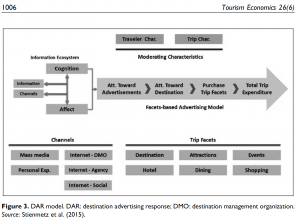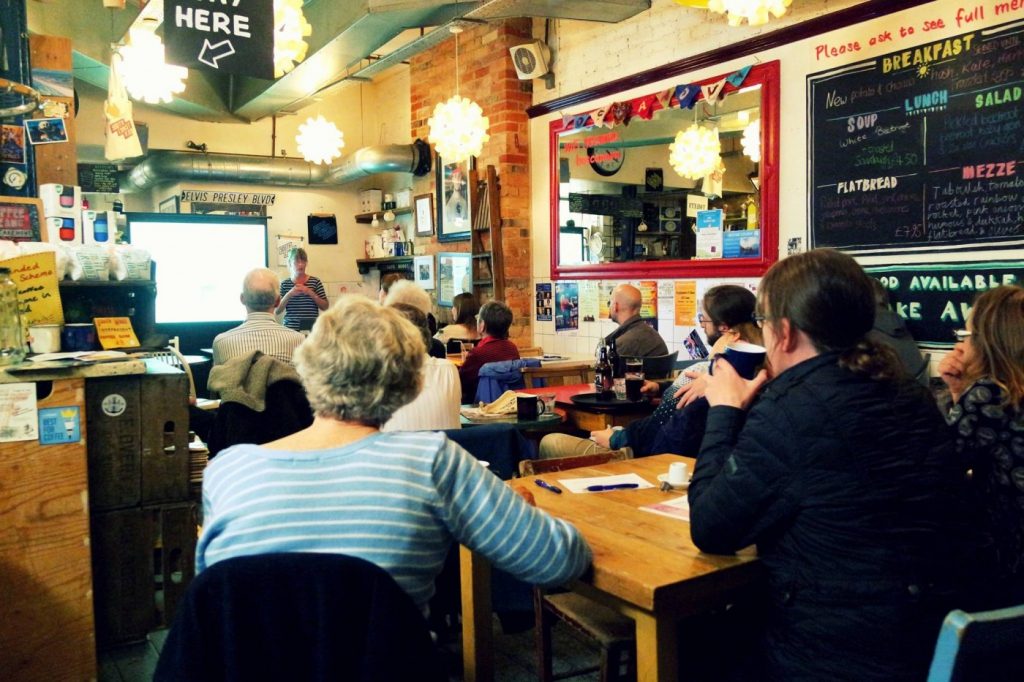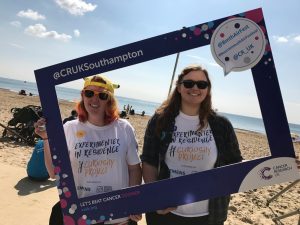
New Publication: de Souza, J., Mendes, LF., Buhalis, D., 2020, Evaluating the effectiveness of tourist promotions to improve the competitiveness of destinations, Tourism Economics, Vol. 26(6), pp, 1001–1020,

Latest research and knowledge exchange news at Bournemouth University

One of the most important things you need to do to create a successful event is to make sure you have the right audience. Having a room full of archaeologists won’t help, if you want to share research which could shape nursing practice, for example.

To help you reach the audiences you want to connect with, we thought it might help to share a list of hint and tips, which you can use when planning your next event.
 e and Impact Team, we have a lot of experience in finding the right audience to invite to a public engagement event. Get in touch if you need any advice or guidance to improve your skills at increasing engagement with your event.
e and Impact Team, we have a lot of experience in finding the right audience to invite to a public engagement event. Get in touch if you need any advice or guidance to improve your skills at increasing engagement with your event.
If you want to learn more about increasing attendance at free public events, check out our blog post to learn all the tricks to making this happen.
Free events usually have a no-show rate of around 40-50% of registrations. This is due to there being a lack of investment, evident in paid events only having a rate of 10-20% no attendance.
There are many ways to combat such a high no-show rate, without adding a cost to the event! These tips are extremely useful when promoting public engagement events as the idea is to engage as many different people in the research as possible, without adding a price tag. Have a look below at the tips and tricks we have to improve the attendance at your events and get those events sold out!
By using these tips, you should hopefully improve your chances of a full house next time you’re running a session. If you want any more advice on how to successfully market Public Engagement activities, send us an email and we will be happy to help.
 Blogging is an excellent way to share your research, reach new audiences and join new networks (see my previous blog post ‘The benefits of academic blogging – should you enter the blogosphere?‘). You can add your own posts to the BU Research Blog to promote your research internally and as the BU Research Blog is available externally then you get the added benefit of reaching external audiences too. Here are some top tips for contributing to the Blog:
Blogging is an excellent way to share your research, reach new audiences and join new networks (see my previous blog post ‘The benefits of academic blogging – should you enter the blogosphere?‘). You can add your own posts to the BU Research Blog to promote your research internally and as the BU Research Blog is available externally then you get the added benefit of reaching external audiences too. Here are some top tips for contributing to the Blog:
1. Figure out what it is you want to blog about
You may be a researcher wanting to share your research findings, or you may want to raise your profile or find new collaborators. Maybe you’ve read something really exciting about HE policy or research in your discipline and want to share it? It may be that you may want to comment on one of the topical research discussions going on in the sector (such as open access). Whatever your reason for wanting to blog, think about who you want to reach with your writing – be it potential collaborators, potential employers, or people on the street.
If you don’t already have access to contribute to the Blog then contact Rhyannan Hurst in RKEO and she will set you up with an account.
If you want people to read what you’ve written, you’ll have to make them want to. Don’t fall into the trap of typing up any old headline and hitting publish after spending ages polishing the blog post itself. Always ask yourself if you’d click on a link based solely on the headline (and be honest). If you wouldn’t, change it.
Descriptive headlines that tell a reader exactly what to expect often work well. You should think about getting key words in there, but don’t fret too much about search engine optimisation. It’s more important to make actual humans want to read your work.
Google Analytics shows us that the most popular posts on the BU Research Blog are those with interesting and sometimes bizarre headlines!
Remember to add links to sources, news articles and other people’s blog posts in your own. Use images or video when they are a better way to communicate than words.
And, thanks to the unlimited space online, you don’t have a word count. But as well as giving you the space to go in-depth when you want to, it means you can write short if the subject doesn’t need a dissertation-length exploration. Don’t write an essay just because you can.
5. Promote your blog post
After publishing your blog post then you should shout about it, ideally using social media such as Facebook and Twitter. Don’t be afraid to send the post directly to certain people who you think will be interested in it.
These have been adapted from Kelly Oakes, Science Editor of BuzzfeedUK’s blog post on ‘How to Start a Science Blog‘.
We are pleased to invite applications for Associate Professor, Professor 1 and Professor 2 appointments.
The title of Associate Professor will be conferred on staff normally with a Doctorate and track record of excellence in one of the following areas: Education, Research, Enterprise or Professional Practice, with an evidence based potential to develop significant national/international standing.
A Professorship is awarded to individuals who have achieved distinction and esteem both at national and international level over and above that of a Reader or Associate Professor in one of the following areas: Education, Research, Enterprise and Professional Practice.
Full details regarding the role, application process, including job descriptions and person specifications are available here:
I Drive\OVC\Public\Professors & Associate Professors.
There will be 2 sessions held during August with the Pro Vice-Chancellor and members of the Professoriate to outline the promotion process, define the role and expectations of Associate Professor and Professorial post holders and outline the evidence you would be expected to demonstrate as part of your application. If you are considering applying for one these posts you are strongly encouraged and expected to attend one of the following sessions:
Applying for Associate Professor – Monday 6 August 2012 at 2pm .
Applying for Professor 1 or Professor 2 – Wednesday 8 August at 2pm.
If for reasons of annual leave you are unable to attend one of these sessions then please contact the Pro-Vice Chancellor for an appointment via Kathryn Hill (ext. 65868) and he will endeavour where possible to meet you individually.
Please contact click here to book on to one of these events. If you are off-campus and experiencing difficulty accessing the staff intranet please email your booking to staffdevelopment@bournemouth.ac.uk
The closing date for all applications will be Wednesday 5 September 2012.
It is expected that applications for Associate Professors will be assessed during September 2012 and shortlisted applicants invited to attend an interview during October 2012 subject to panel availability.
It is expected that applications for Professor 1 or 2 will be assessed during September 2012 and shortlisted applicants invited to attend an interview during December 2012 subject to panel availability.
If you would like any further information regarding this process then please speak to Katherine Jabbari on 61145 or your Academic Manager in the first instance.
Kind regards
Human Resources